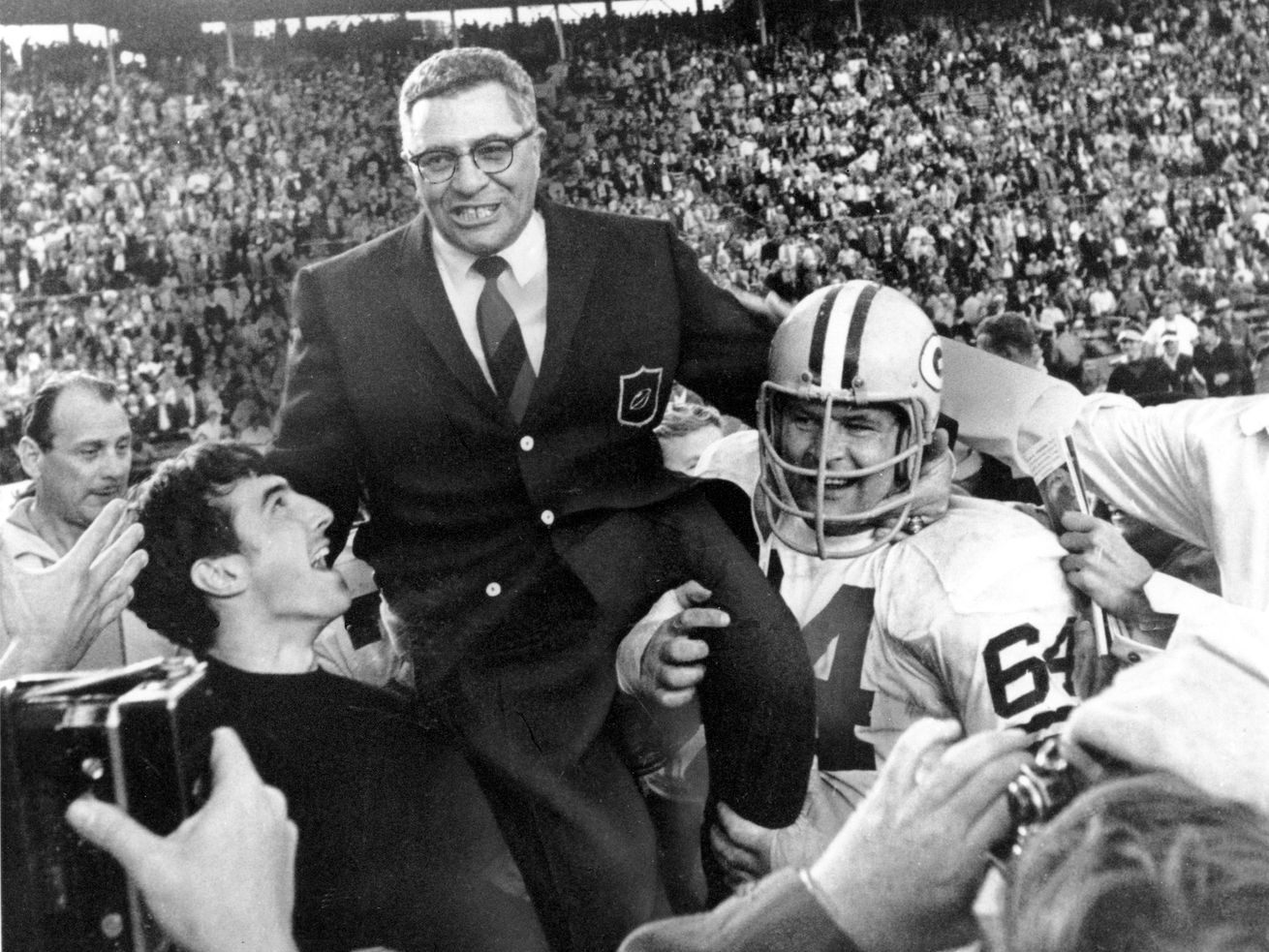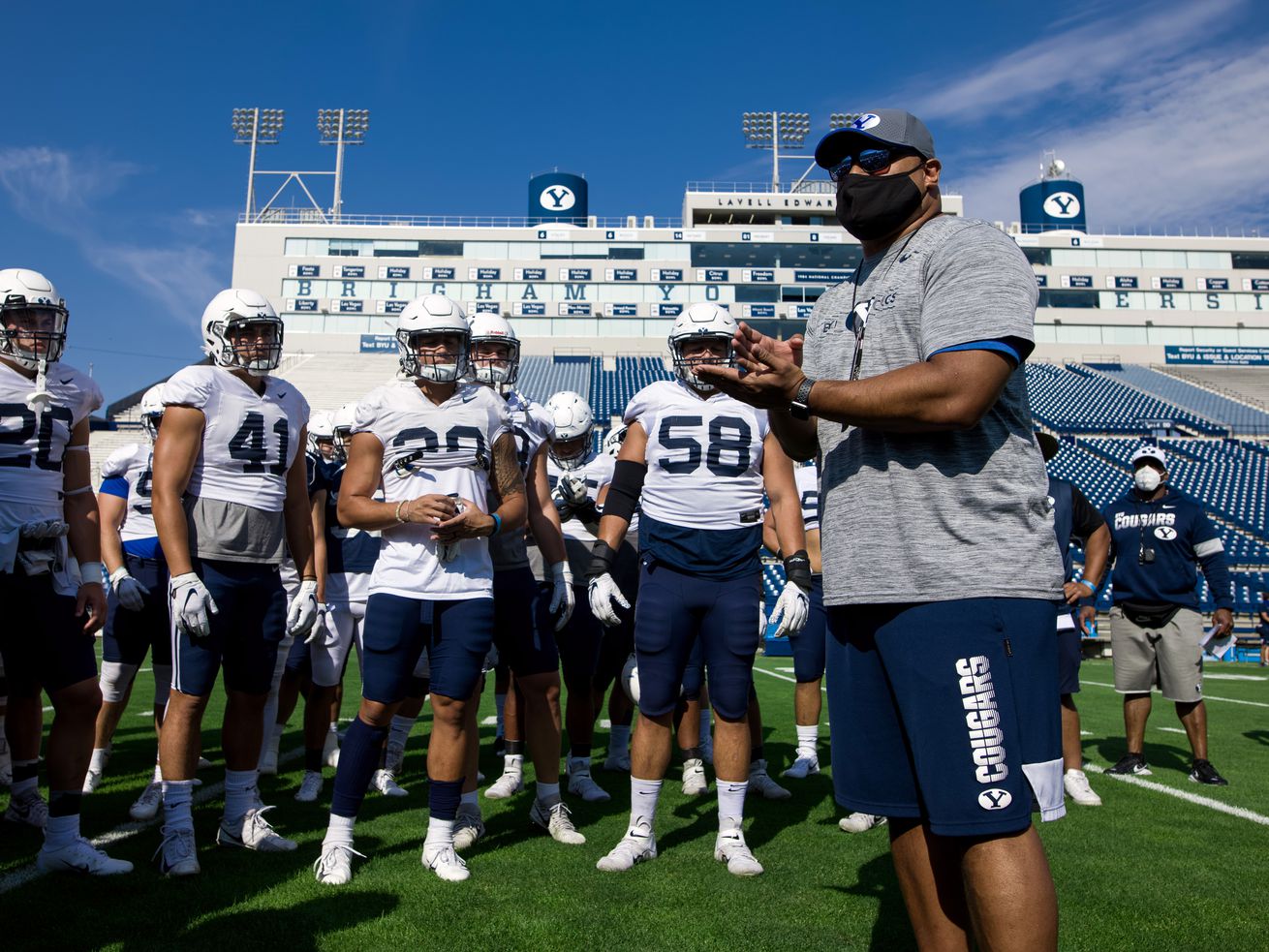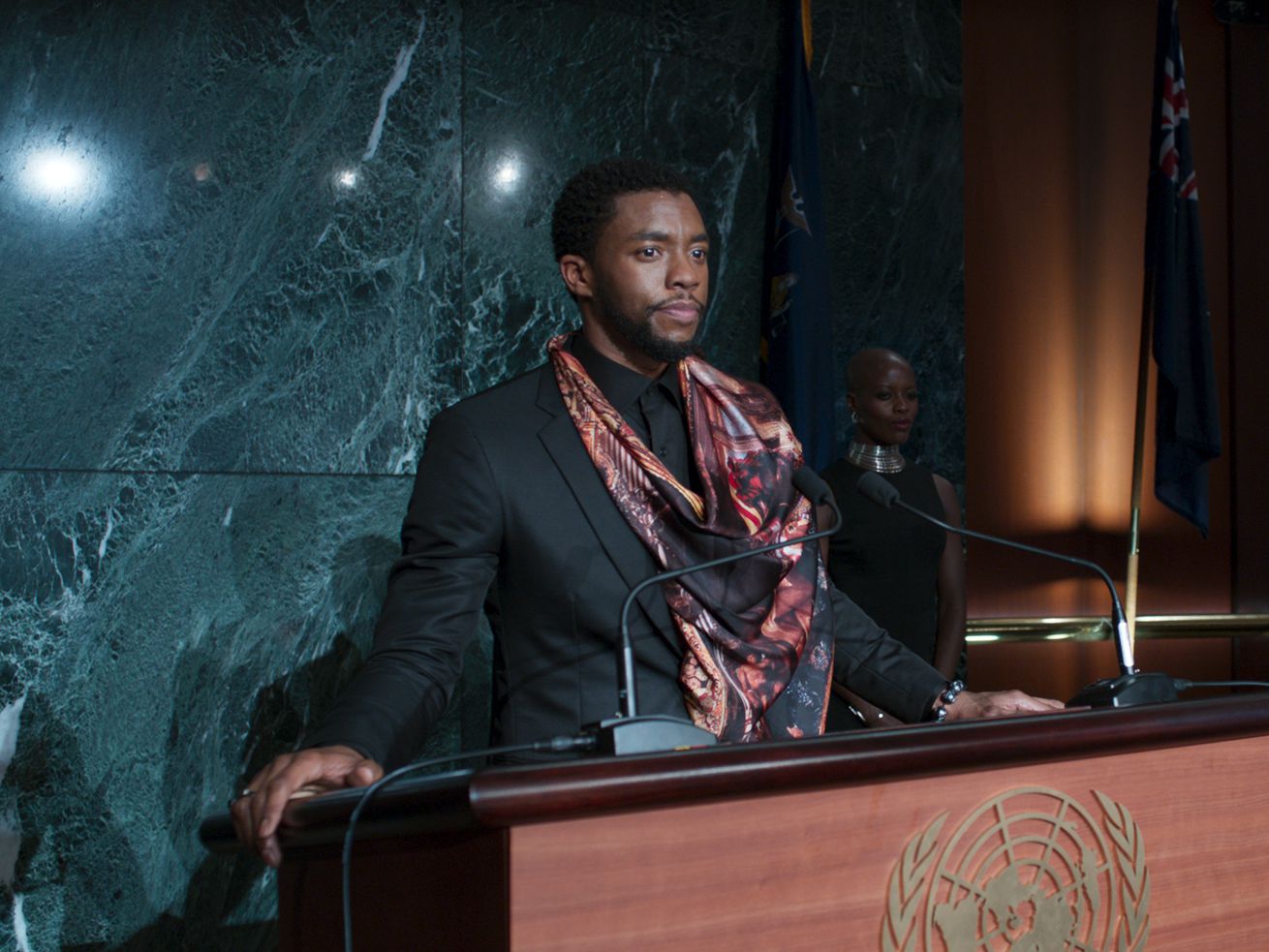 Utah Jazz guard Donovan Mitchell, left, shoots the basketball against Denver Nuggets guard Jamal Murray, right, in Game 2 of an NBA basketball first-round playoff series, Wednesday, Aug. 19, 2020, in Lake Buena Vista, Fla. | Kim Klement/Pool Photo via AP
Utah Jazz guard Donovan Mitchell, left, shoots the basketball against Denver Nuggets guard Jamal Murray, right, in Game 2 of an NBA basketball first-round playoff series, Wednesday, Aug. 19, 2020, in Lake Buena Vista, Fla. | Kim Klement/Pool Photo via AP
KISSIMMEE, Fla. — The NBA playoffs have mostly consisted of short series this year, but the Utah Jazz and Denver Nuggets have kept things interesting, providing the opening round with its first Game 7 to come on Tuesday.
So far there have been three 4-0 sweeps, two 4-1 results, a 4-2 finish by the Los Angeles Clippers over the Mavericks on Sunday, and a chance for the Houston Rockets, who lead the Oklahoma City Thunder, 3-2, to close out Monday night.
Leading up to the Jazz-Nuggets series, one of the most anticipated individual matchups in the first round was Rudy Gobert vs. Nikola Jokic. With the way things have played out, that matchup seems secondary at best to what has actually happened in the backcourt as the battle between Donovan Mitchell and Jamal Murray has become must-see TV.
The statlines through six games for the teams’ leading guards are impressive enough on their own. Mitchell is averaging 38.7 points per game while shooting 54.8% from the field, 55.4% from 3, and has scored 50 or more points twice during the series. Through six games, Murray is averaging 34 points while shooting 58.5% and 57.4% from deep. He also has two 50-point performances. But those numbers, while staggering, don’t tell the whole story.
Mitchell and Murray joined Allen Iverson as the only players in NBA history to have multiple 50-point showings in a single playoff series and they often have done so by going shot for shot, battling each other in what has seemed like the most performative one-on-one battle ever.
It is very easy to look back at Game 1, an overtime Jazz loss in which Murray and Mitchell traded buckets and Mitchell finished with 57 points only to come up short when Murray had an answer for everything the Jazz threw at him down the stretch, and think about this whole series being about Mitchell and Murray. That, however, would be a misrepresentation of how the series has actually played out.
Murray nearly disappeared in Games 2 and 3, taking just two 3-pointers in Game 2 and shooting 25% from beyond the arc in Game 3. The Jazz’s defense was taking care of business not just with Murray, but also with Jokic, who only had 15 points in Game 3. The Jazz were rebounding with strength, coming up with stops, and on the other end looked like a well-oiled machine.
Rather than rely on a 50-plus point performance from Mitchell, the Jazz’s blender was running, much to the dismay of Nuggets coach Mike Malone, who lamented the number of pick-and-rolls and drives that the Jazz had through the first three games.
Game 4 was a reminder of the shootout that happened in Game 1 with Murray and Mitchell both dropping a 50-piece as the Jazz eked by with a two-point win. Again, Murray and Mitchell were dazzling but the stories behind Mitchell were the contributions from his teammates, which only can be as large as they were with a certain amount of trust and movement.
Then the series shifted. To that point, the Jazz were completely outplaying the Nuggets, making their defense look weak while looking like the overall more talented team. In Games 5 and 6, the wheels fell off for the Jazz.
The thing is, the Nuggets have been in this position before. They are well versed in playing long playoff rounds and playing from behind, fighting for their lives through the back end of a series. It’s not a surprise they were able to pull themselves up by their bootstraps and put together a heartfelt win.
From the Jazz’s point of view, the mental collapse that happened in the crucial moments of Game 5 were more concerning than anything the Nuggets were able to do. They failed to defend with effort on key possessions, passed up shots, and made mental errors that cost them the game. The hope was they would bounce back and close things out in Game 6, but the game seemed to get further away from the clean and precise Jazz basketball that was seen in the earlier games of the series.
The Nuggets were demoralized in the early going of the series but the Jazz have been equally embarrassed as Denver has tied things up 3-3 heading into Tuesday’s Game 7.
Before the series began, in a preview article I asked three questions: Will the Nuggets get Will Barton or Gary Harris back? Can the Jazz play 48 minutes of solid basketball? And, which team’s depth will have a bigger impact on the series?
Harris returned to the Nuggets’ lineup on Sunday, playing 20 minutes in his first game in nearly six months. While he only scored four points in the Nuggets’ win, he came up with two steals and gives the Nuggets a reliable perimeter defender who can bother the Jazz’s multiple ball-handling guards.
Whether Harris continues to come off the bench, or the Nuggets move Monte Morris back to make room for Harris in the starting lineup in Game 7 won’t matter too much. What does matter is the Nuggets, who were lousy at defending the Jazz on the wings to start the series, have flipped that around and now have another weapon to use in just that area.
The Jazz’s inconsistency through the course of a single game has been an issue. Mental errors in Game 1 and Game 5 could end up haunting them. But their inconsistency from game to game has become the bigger concern.
Rotations always become shorter in the playoffs and if there aren’t major injuries or foul trouble to contend with, depth can become an afterthought. It hasn’t necessarily been that the Jazz have a depth problem so much as the Jazz aren’t getting consistent contributions from their key players every night. Joe Ingles and Royce O’Neale combined for just 10 points in Game 6. In the last four games, Ingles has scored 2, 0, 13, and 5 points respectively with four total made 3s during that stretch.
There’s no doubt that Mitchell and Murray have been the two best players on the court throughout the series and have put on a show with historic performances, but the series has been about more than that with the teams collectively collapsing and coming together at different points.
The Nuggets head into Game 7 with the momentum of the last two games, but the Jazz have the tools to make the Nuggets pay. The team that is able to play with the most consistency is likely the squad that will advance to the Western Conference semifinals.
from Deseret News https://ift.tt/3jqaqpI
 Emergency responders arrive to a Roy neighborhood on Wednesday, Jan. 16, 2020. | Mark Wetzel, Deseret News
Emergency responders arrive to a Roy neighborhood on Wednesday, Jan. 16, 2020. | Mark Wetzel, Deseret News
 President Donald Trump and first lady Melania Trump arrive on the South Lawn of the White House on the fourth day of the Republican National Convention, Thursday, Aug. 27, 2020, in Washington. | Evan Vucci, Associated Press
President Donald Trump and first lady Melania Trump arrive on the South Lawn of the White House on the fourth day of the Republican National Convention, Thursday, Aug. 27, 2020, in Washington. | Evan Vucci, Associated Press
 Adobe Stock image
Adobe Stock image

 The steeple of the Manaus Brazil Temple, dedicated June 10 by President Dieter F. Uchtdorf, can be see from the banks of the Rio Negro River in Manaus, Brazil. Photo by Sarah Jane Weaver | Sarah Jane Weaver
The steeple of the Manaus Brazil Temple, dedicated June 10 by President Dieter F. Uchtdorf, can be see from the banks of the Rio Negro River in Manaus, Brazil. Photo by Sarah Jane Weaver | Sarah Jane Weaver  This Aug. 13, 2020, photo shows a logo for Netflix on a remote control in Portland, Ore. | AP
This Aug. 13, 2020, photo shows a logo for Netflix on a remote control in Portland, Ore. | AP
 Adobe Stock image
Adobe Stock image
 Real Salt Lake midfielder Kyle Beckerman (5) works to control the ball as as Real Salt Lake and Los Angelees FC play at Rio Tinto Stadium in Sandy on Saturday, Aug. 17, 2019. LA won 2-0. | Scott G Winterton, Deseret News
Real Salt Lake midfielder Kyle Beckerman (5) works to control the ball as as Real Salt Lake and Los Angelees FC play at Rio Tinto Stadium in Sandy on Saturday, Aug. 17, 2019. LA won 2-0. | Scott G Winterton, Deseret News
/cdn.vox-cdn.com/uploads/chorus_asset/file/19428060/merlin_115927.jpg) Kristin Murphy, Deseret News
Kristin Murphy, Deseret News
 An empty court and bench are shown following the scheduled start time of Game 5 of an NBA basketball first-round playoff series, Wednesday, Aug. 26, 2020, in Lake Buena Vista, Fla. | Associated Press
An empty court and bench are shown following the scheduled start time of Game 5 of an NBA basketball first-round playoff series, Wednesday, Aug. 26, 2020, in Lake Buena Vista, Fla. | Associated Press
 Green Bay Packers coach Vince Lombardi is carried off the field after his team defeated the Oakland Raiders 33 to 14 in the Super Bowl II game in Miami, Fla. on Jan. 14, 1968. | Associated Press
Green Bay Packers coach Vince Lombardi is carried off the field after his team defeated the Oakland Raiders 33 to 14 in the Super Bowl II game in Miami, Fla. on Jan. 14, 1968. | Associated Press
 Utah football received a commitment from linebacker Mason Tufaga, a four-star prospect from Hawaii, on Monday. | Scott G Winterton, Deseret News
Utah football received a commitment from linebacker Mason Tufaga, a four-star prospect from Hawaii, on Monday. | Scott G Winterton, Deseret News
 Luis Espinoza, a third-grade teacher at Esperanza Elementary School, gets a COVID-19 test at Esperanza Elementary School in West Valley City on Friday, Aug. 14, 2020. All faculty and employees who work at Esperanza Elementary School were asked to get tested in preparation for the school’s opening on Aug. 24. Any employees who get a positive test result will quarantine at home for two weeks with full pay. The Utah Department of Health, in collaboration with the Consulate of Mexico in Salt Lake City and Esperanza Elementary School, invited the community to be tested for COVID-19, free of charge. | Laura Seitz, Deseret News
Luis Espinoza, a third-grade teacher at Esperanza Elementary School, gets a COVID-19 test at Esperanza Elementary School in West Valley City on Friday, Aug. 14, 2020. All faculty and employees who work at Esperanza Elementary School were asked to get tested in preparation for the school’s opening on Aug. 24. Any employees who get a positive test result will quarantine at home for two weeks with full pay. The Utah Department of Health, in collaboration with the Consulate of Mexico in Salt Lake City and Esperanza Elementary School, invited the community to be tested for COVID-19, free of charge. | Laura Seitz, Deseret News
 BYU coach Kalani Sitake talks to his players during the Cougars’ scrimmage at LaVell Edwards Stadium on Thursday, Aug. 20, 2020. | Jaren Wilkey/BYU
BYU coach Kalani Sitake talks to his players during the Cougars’ scrimmage at LaVell Edwards Stadium on Thursday, Aug. 20, 2020. | Jaren Wilkey/BYU
 Chadwick Boseman plays T’Challa/Black Panther in “Black Panther.” | Film Frame, Marvel Studios
Chadwick Boseman plays T’Challa/Black Panther in “Black Panther.” | Film Frame, Marvel Studios
